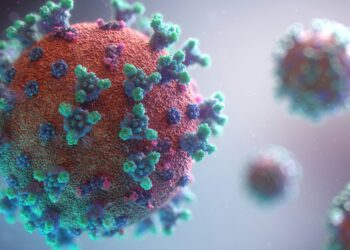I can’t predict what life phase you’re currently in, but whatever it is, I hope it’s related to your health journey. You’re probably aware of how broad health can be, and tackling these various facets of personal health will help you progress in your health journey. Gut health is just one of many components of health.
Recently, scientists have discovered how helpful microorganisms are to health. Health enthusiasts also preach all day on various social media platforms about gut health. Now, people are more focused on eating foods and adopting habits that promote a healthy gut. In this article, we’re going to learn about “gut health” and the function of these microorganisms in the body.

How Are Microorganisms Powerful?
There are tons of microorganisms in the digestive system which are made up of different species of organisms such as bacteria, fungi, and viruses. Because of this diversity in microorganisms, there will be better support for digestion in the body, increased nutrient absorption and even protection against harmful pathogens. However, each of these species have their individual roles that they play in the gut.
What Is The Connection Between Gut And Overall Human Health?
Firstly, the gut microbiome helps the body fight against harmful bacteria. One instance is supporting the immune system by fighting against harmful bacteria in the gut lining. The lining of the gut which is located in the gastrointestinal (GI) tract are physical barriers that prevent harmful bacteria from entering the bloodstream. The barriers are made up of cells that are made up of closely packed cells which help to contain the harmful bacteria. The gut microbiome then dominates the environment and prevents these harmful bacteria from dwelling in the body and causing things like infection.
Secondly, the gut also has a connection with the brain. This connection is known as the gut brain axis. The micro organisms in the gut such as bacteria produce chemicals. These gut microbes provide various substances such as neurotransmitters like serotonin, short-chain fatty acid etc. Serotonin affects the mood and thinking of a person. Therefore if your microbiome is out of balance it can lead to issues such as anxiety and depression.
Remember gut microbiomes are excellent at nutrient absorption. Some gut bacteria are more efficient at extracting energy from food during nutrient absorption this mechanism can contribute to weight gain and obesity.
Other gut bacteria can the efficient in fiber fermentation, vitamin production, immune system support, pathogen inhibition, neurotransmitters production, and gut barrier maintenance etc. If there is an imbalance in the amount of good and harmful bacteria in the gut, this can lead to an increase absorption of calories which can lead to weight gain.
How Can You Have A Healthy Gut?
Basically, having a healthy gut will aid in proper digestion vitamin production immune system support and other bodily functions. In order to achieve a healthy gut you have to eat certain foods in order to boost these gut microbiomes. These foods include:
- Prebiotics – garlic, onions, bananas, and asparagus.
- Probiotics – yogurt, kefir, sauerkraut, and kimchi.
- Fiber – fruits, vegetables, beans, and whole grains.
Conclusion
What it means to be in a “healthy gut” era is to keep the gut microbiome balanced. When these good bacteria are outnumbered by mighty bad bacteria, this can lead to infection and other health issues such as diabetes and obesity. But keeping the good bacteria in an appropriate or adequate number that it balances out with the bad or harmful bacteria, by eating prebiotics, probiotics, and fiber, the body will be able to fight against this health issues.

















